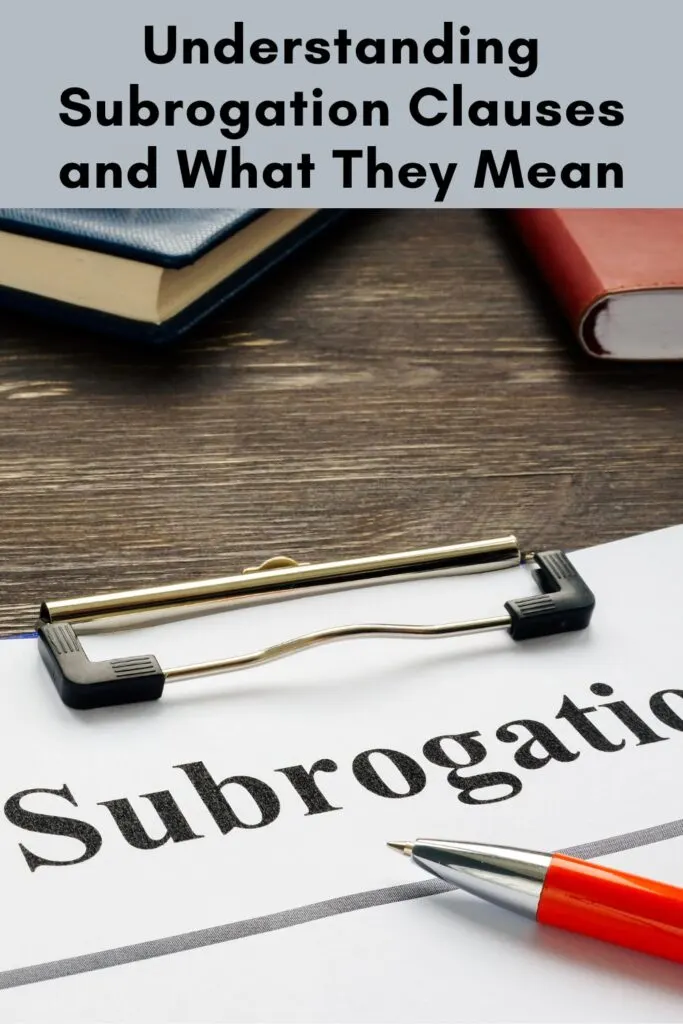
Most people don’t know about subrogation clauses or letters. They don’t know what the term means. You might never encounter it, and that’s fine.
Subrogation clauses can significantly impact car accident claims, though. If you run into one, it might blindside you. You’re not expecting it, but you must deal with its impact.
In this article, we’ll talk about subrogation clauses and letters. You should know about this term in case you ever get a subrogation letter in the mail.
Times When Subrogation Clauses Might Come into Play
Let’s run through a scenario for a moment. You’re driving on the highway, and another driver hits you. Maybe they’re not paying attention, and they change lanes without signaling. Perhaps they’re using their smartphone, or they’re fixing their hair in the mirror.
The accident damages your vehicle and hurts you. You feel sure you can prove the other driver caused
the collision, so their insurance company should pay you. However, the other driver’s insurance company disputes your claim.
You hire a lawyer and go after the insurance company in court. You’re now bringing a personal injury lawsuit against that company. The attorney you hired does these cases exclusively. You feel you can win your case and get some money.
That cash can cover your pain and suffering. It can cover your medical bills and the car repairs you need. You establish the other driver caused the crash, and you know there’s now a settlement coming your way.
However, while expecting that money, you get a letter in the mail. That letter has your health insurance company’s name on it, and it demands money. You find out lawyers call that a subrogation letter.
What Does a Subrogation Letter Mean?
Subrogation letters usually come if you have healthcare coverage and that coverage has a subrogation clause in it. You might not know about the clause until something like a car accident or some other mishap occurs.
Usually, subrogation kicks in when you have accident-related injuries, and you must seek medical care for the harm you suffered. That might include an operation you require if you broke some bones. Maybe it includes X-rays or MRI costs.
Subrogation means your health insurance provider can impose a lien against you. A lien lets a person or entity, your health insurance provider, in this case, impose a financial restriction against you. A lien implies you owe the entity that holds it a debt.
This clause kicks in if you win a legal case against a person or entity who harmed you and you also got medical care through your health insurance provider. Your health insurance company wants money back that they shelled out for your surgery or any other medical procedures you needed after the accident.
Other Companies Sometimes Handle Subrogation Clauses
Here’s where it gets a little tricky. You probably won’t expect a subrogation letter in the mail after you’ve just gone through an exhausting courtroom battle. If you see that the letterhead has your health insurance company’s name on it, though, you at least know it’s legit, even if you don’t agree that you should reimburse your healthcare provider for the medical procedures or equipment you required.
Things may become more complicated if you don’t recognize the entity’s name on the letterhead. You might see that you have some company you’ve never heard of before saying you owe them money.
This sometimes happens because certain health insurance companies don’t handle their own subrogation claims. They might have another entity do that for them.
If whoever’s watching over your health insurance account sees you sued someone for personal injury and won, and they also see that you used your health insurance for a medical procedure you needed, they might alert the company that handles their subrogation cases. The company springs into action, drafting a letter they send you.
The company might call you instead. You’re probably still traumatized after the accident, and you’ve gone through a grueling trial. You won, but now, you have an entity you don’t know saying you owe them money.
Even if they explain that they represent your health insurance company, that likely won’t make you feel any better. You probably feel you deserve the money you’re collecting.
You’re the one who went through the accident and the pain and suffering involved. You’re also already paying for your health insurance, so why should you give them any money after winning your lawsuit, whether through a secondary company or not?
Must You Pay That Money?
You’re probably wondering at this point about subrogation clauses and their legality. Unfortunately, they’re legal, and they’re relatively common. There’s some good news, though.
You must only pay your health insurance provider the requested sum, or the secondary company they employ, in some cases, under very specific circumstances. You won’t know about those circumstances, though, since you’re not a lawyer. You’re probably only now learning about this concept, so you don’t know about these clauses and how they work.
If you get a subrogation letter in the mail, contact a good attorney. Your lawyer can tell you whether your health insurance provider or the secondary company they use has a legal claim to your winnings or not. They can also tell you about your options and what you should do next.
Sometimes, you can fight subrogation clauses. They only kick in during very specific instances. It’s underhanded, but some health insurance companies might try threatening you with a letter and a subrogation clause because they think you won’t contact an attorney. They feel like you might pay them because you feel intimidated and you don’t know any better.
Sometimes, you must pay the health insurance company or their lackeys some of your winnings, but just as many times, you can fight against this clause in court. You won’t know how the land lies till you get a skilled lawyer on your side, though. This is a situation where you absolutely need one.
